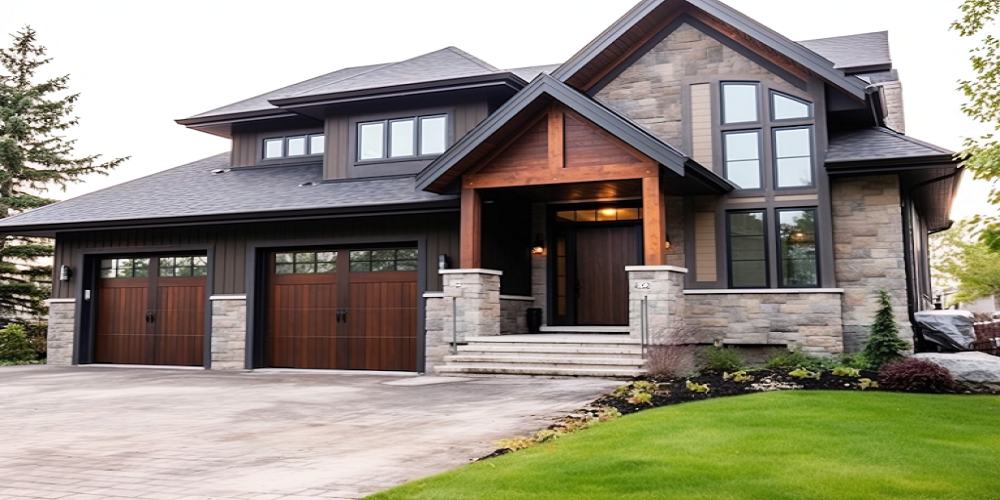A garage door, often overlooked in the grand scheme of home maintenance, is crucial in safeguarding your property. As an exterior component, it faces many challenges, with rust and other damages chief among them. This article aims to unravel the complexities of garage door design and its profound impact on susceptibility to rust, offering insights into materials, design elements, and maintenance practices that can significantly enhance its durability.

Factors Affecting Garage Door Durability
- Material Selection
The choice of garage door material is paramount in determining its resistance to rust—steel, with its robustness, and aluminum, with its corrosion-resistant properties, each present unique advantages. However, while offering a timeless aesthetic, wood requires careful maintenance to prevent rot. It is vital to get high-quality materials, to fortify your garage doors against the corrosive effects of time and weather.
- Design Elements
Beyond material, the design of garage door panels plays a pivotal role in its strength and resistance to rust. Exploring factors like panel thickness, rib structure, matching garage door, and front door, will help to uncover the nuances influencing a garage door’s ability to withstand environmental stressors. Thicker panels and strategic ribbing enhance structural integrity, providing a more resilient defence against rust-inducing elements. Additionally, door seals and weatherstripping play a crucial role in preventing moisture intrusion, a pivotal contributor to rust formation.
- Coating and Finishing
Protective coatings, such as galvanized or powder-coated finishes, emerge as powerful allies in the battle against rust, particularly for steel garage doors. Galvanization involves applying a zinc coating to steel, creating a protective barrier against corrosion. Proper painting or staining of wooden garage doors also proves instrumental in shielding them from moisture damage. It is important to pay attention to these finishing touches to ensure the longevity of garage doors, providing a defence against the relentless forces of nature.
Choosing a Rust-Resistant Garage Door
- Consider Environmental Factors
Environmental conditions, including humidity, salt exposure, and extreme temperatures, can expedite the formation of rust. Consider aligning garage door materials and finishes with these conditions, to provide a strategic approach towards rust prevention. Coronary-resistant materials are particularly crucial for coastal regions where salt exposure is high.
- Prioritize Quality Over Cost
While the allure of cheaper garage doors may be strong, we cannot emphasize enough the long-term cost-effectiveness of investing in high-quality doors. Lower-quality materials and construction methods often make inexpensive doors more susceptible to rust. A quality garage door investment becomes an investment in your home’s long-term resilience and aesthetic appeal.
- Consult with a Professional
In pursuing a rust-resistant garage door, seeking guidance from experienced installers or repair technicians becomes crucial. Beyond material selection, professionals can provide valuable insights into the ideal door for your specific needs and location. Proper installation and ongoing maintenance, guided by professionals, are essential steps in ensuring the longevity of the garage door and preventing rust or other problems.
Conclusion
Summarizing the key factors influencing rust resistance, it is important to get high-quality garage doors and proper maintenance practices. Consulting with professionals is the ultimate step towards ensuring a durable and rust-resistant garage door, securing the investment for years to come, and providing peace of mind in the face of environmental issues.